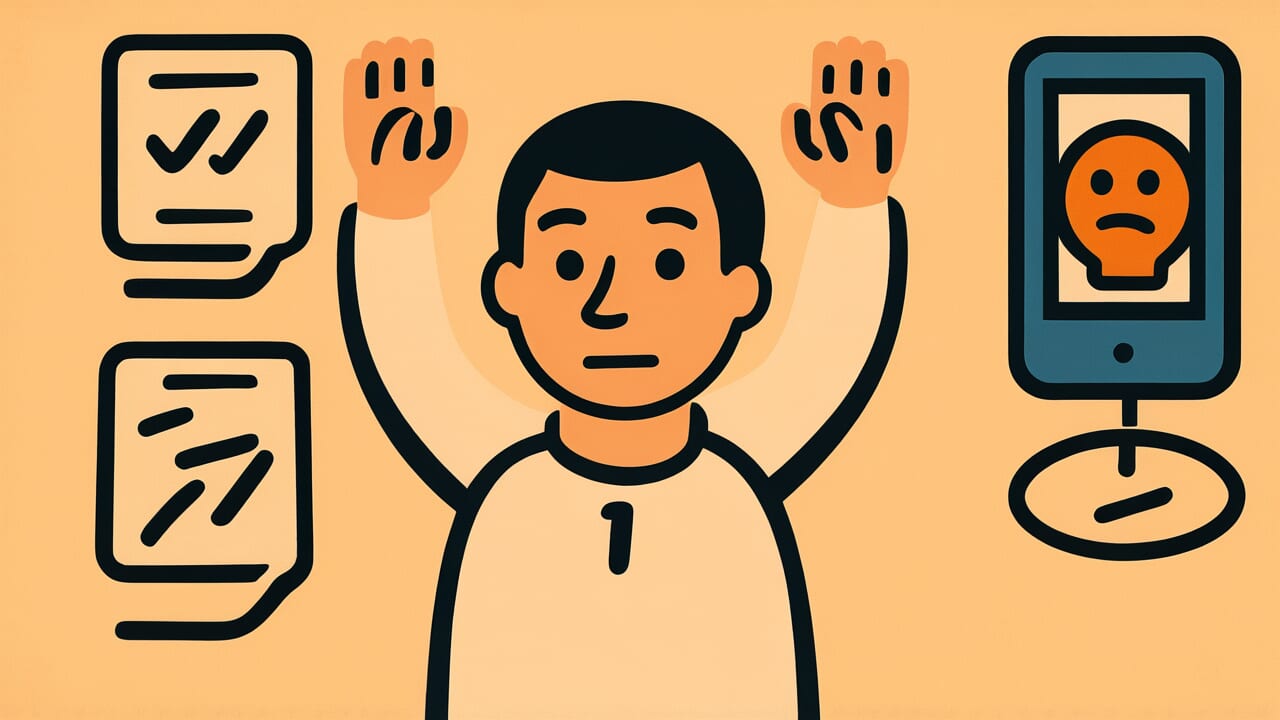How to Read “Empty yourself”
Onore o munashūsu
Meaning of “Empty yourself”
“Empty yourself” teaches us to let go of selfishness and personal desires. We should face things with a humble heart.
To “empty” here means clearing your mind. It means releasing your ego, preconceptions, and attachments.
This proverb applies when you shouldn’t cling to your own ideas. Instead, you should accept others’ opinions and new learning with an open mind.
It’s also used when teaching people not to obsess over status or honor. Focus on seeing the true nature of things instead.
Today’s world often emphasizes self-assertion. But this proverb doesn’t mean erasing yourself.
Rather, it has a positive meaning. By breaking through the shell of ego, you gain broader perspectives and deeper understanding.
When your mind is free of unnecessary things, truth becomes visible. You can hear others’ voices. Space opens up for new wisdom to enter.
Origin and Etymology
“Empty yourself” likely came to Japan through ancient Chinese philosophy. It was especially influenced by Taoist thought.
“Munashūsu” is an old Japanese expression meaning “to make empty.” It represents clearing your mind and removing selfish thoughts.
In Laozi’s philosophy, the concept of “emptiness” holds an important place. A vessel can hold things because it’s empty.
Similarly, the mind can accept truth because it’s empty. This teaching came to Japan and merged with Buddhist thought.
It gradually became established as a uniquely Japanese proverb.
The word “onore” (己) is worth noting. It doesn’t just mean “self.”
It refers to the ego and self that become objects of attachment. To “empty” this means letting go of personal desires.
These include desires for profit, honor, and pride.
Japan has long valued humility and selflessness as virtues. In bushido, the state of “no-self” was considered ideal.
In tea ceremony, “mushin” (no-mind) was treasured. Within this Japanese spiritual culture, “Empty yourself” was passed down.
It wasn’t just about modesty. It represented an active attitude for reaching a higher state of being.
Usage Examples
- He emptied himself and listened to his teacher’s guidance, which is why he could grow so much
- As I gain more experience, I realize that emptying yourself is what matters most as a leader
Universal Wisdom
Everyone has desires to protect themselves, be recognized, and be right. These feelings are necessary for survival.
But attachment to “self” often blocks growth and understanding.
“Empty yourself” has been passed down for hundreds of years. This is because humans are fundamentally prone to being trapped in the “cage of ego.”
We unconsciously see the world through filters of our own experience and knowledge. These filters sometimes distort truth.
They block dialogue with others. They make new possibilities invisible.
What’s interesting is that this proverb says “empty yourself,” not “abandon yourself.” It doesn’t mean completely erasing yourself.
It shows a flexible attitude of temporarily emptying yourself and creating space. A vessel can receive new water because it’s empty.
Similarly, new learning and insights can enter because your mind has space.
Our ancestors understood something profound. Human growth isn’t just about accumulating knowledge.
Sometimes it’s also about letting go. The courage to discard pride, release preconceptions, and admit your smallness.
That humility paradoxically becomes the power that makes people grow greatly. This deep insight is contained in this proverb.
When AI Hears This
In communication networks, receiving devices have a temporary storage area called a “buffer.” When this buffer fills with existing data, new data packets can’t be physically stored.
The system automatically discards that data. This is called “buffer overflow.”
Human cognitive systems have a surprisingly similar structure. The brain’s working memory has limited capacity.
In psychology, there’s a rule called “the magical number seven plus or minus two.” People can only hold about five to nine pieces of information simultaneously.
What’s important is this: when existing beliefs and preconceptions occupy working memory, new information can’t enter the “processing queue.”
It disappears before reaching consciousness.
Even more interesting is that communication engineering has a technique called “adaptive buffer management.” This actively deletes low-priority old data.
It constantly secures free space for new important data. “Empty yourself” is exactly this “intentional buffer clearing process” that humans execute manually.
Computers do this automatically by design. But humans must consciously clear their memory space.
Otherwise, they fall into a state of endlessly circulating the same data. This is the stopping of learning.
Lessons for Today
In modern society, asserting yourself on social media is normal. Expressing your opinions is expected.
But precisely because information overflows today, the attitude of “Empty yourself” might bring you new possibilities.
When opinions clash at work, don’t immediately argue back. Set aside your position and listen to the other person.
When learning something new, discard the assumption “I already know this.” Face it with a beginner’s mind.
You can start with such small practices.
What matters isn’t denying yourself. Rather, it’s a positive perspective.
By creating space in your mind, you can become a richer person. If a cup is full of water, new water can’t enter.
But if you empty it a little, you can pour fresh water.
Your experience and knowledge are precious assets. But sometimes, set them aside temporarily.
Try seeing the world with a fresh mind. That humility will bring unexpected learning and encounters your way.



Comments